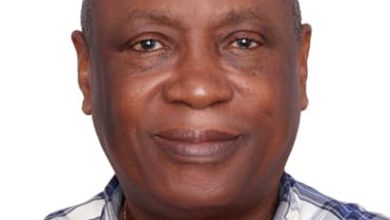The political economy of restructuring Nigerian federation

No issue commands a greater, broader consensus in Nigeria today than the need for restructuring the Nigerian federation. Almost the entire Nigerian socio-cultural-political groups (South West/Yoruba Nation; South-South; South East/Ndigbo; Middle Belt, and the former Northern Region) have either produced or are working to announce their template for restructuring.
Institutions lead economic transformation. Many analysts and politicians brandish economic blueprints for a post oil Nigeria but without the concomitant legal-political-governance infrastructure to deliver such Plans. This is actually a key missing link in many of the failed National Plans not only in Nigeria but also in many countries. Such economistic plans either sought to legislate politics out of public policy or misunderstood change to be a push-button technocratic process. Such plans are often predicated on the false assumption that committed and visionary leadership to implement them will fall from the skies without understanding that leadership is an endogenous variable. In the end, politics will always trump economics and only very few politicians understand that sound economics is excellent politics.
Much of the tax powers are currently concentrated at the National Assembly and this constrains states’ flexibility in deploying fiscal instruments for development. For example, why should all corporate taxes and Value Added Tax be paid into the federation account? Wherein lies the incentive for states and local governments to attract and promote industrialization? The probable direct benefit to the state government is the personal income tax of the employees. But why would a state go out of its way to attract high tech companies (especially those operated by robots) but with high revenue and corporate taxes if it will share equally in the benefits with other states? If the power for the incorporation of companies is devolved to the states/regions, perhaps some could be creative to design tax haven status for some categories of companies. Some countries make hundreds of millions of dollars per annum from this kind of innovation. Our point is that the federating units should have the flexibility to deploy taxation as a veritable instrument to attract or promote enterprise and for independent revenues. Furthermore, why should we have uniform salary scales across the country or even common minimum wage? There is just too much of a unitary system which constrains everyone to move at the same speed instead of incentivising different segments of the society to innovate and prosper at different speeds.
The 2019 election is around the corner and what I see so far in the arena is largely theatre and little substance. Politicians are busy negotiating for personal positions but hardly anyone is negotiating for the future of Nigeria. Political parties are offering us platforms and slogans to capture power, and politicians as members of the same club (Nigeria Incorporated) are regrouping into subgroups to capture power. Some are announcing fantastic programmes and targets but without the slightest understanding that the underlying structure renders such targets/programmes as a no brainer or hallucinations.
Restructuring ought to be on the ballot in the 2019 and future elections. Put differently, 2019 elections ought to partly be a referendum on restructuring. To be credible, political parties and candidates need to spell out the specifics of the restructuring they offer. We need to elevate the debate beyond pedestrian manifestoes that don’t add up. To repeat, the cloud is threatening, and a wise man gets the umbrella ready before the rain starts!
*Being extract from the keynote address by former Governor of Central Bank of Nigeria, Prof. Charles Chukwuma Soludo at the maiden lecture organised by Ndigbo Lagos Foundation at the Nigerian Institute of International Affairs.
Called from the Cable





